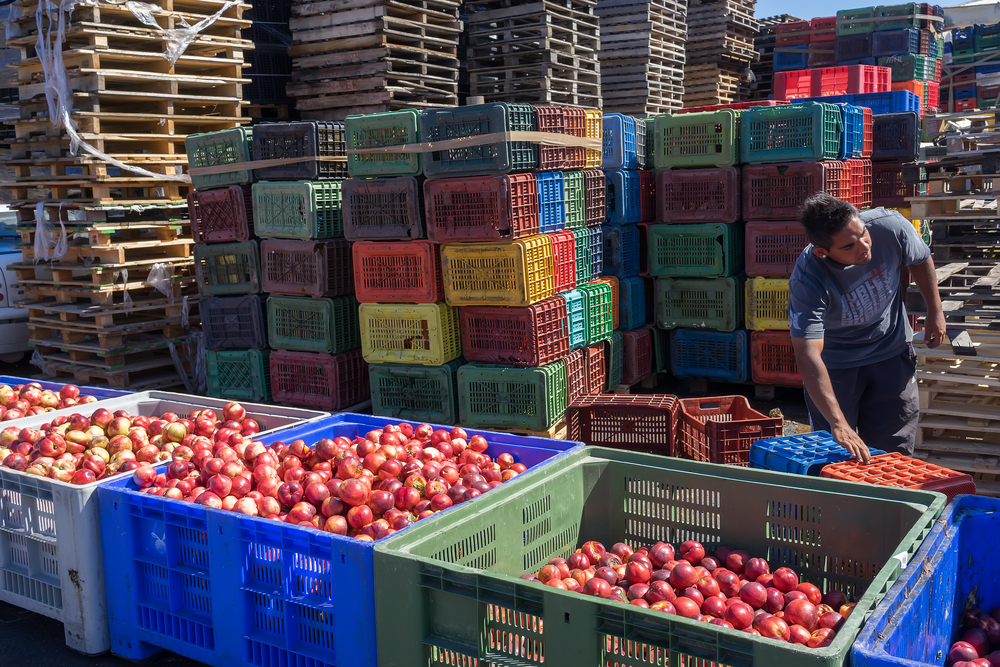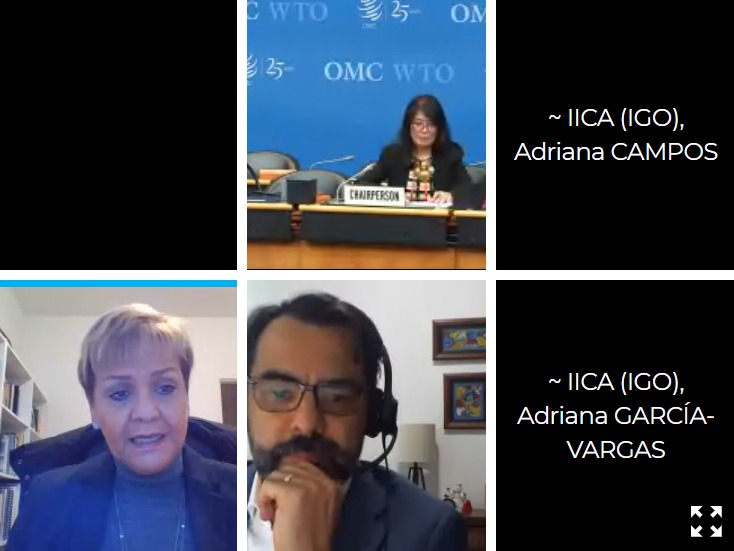IICA presented recommendations from almost all its member countries at a virtual meeting with the authorities of the Committee on Agriculture of the World Trade Organization (WTO).

San Jose, 10 December 2020 (IICA). Countries of the Americas that are members of both the Inter-American Institute for Cooperation on Agriculture (IICA) and of the World Trade Organization (WTO), made various recommendations to improve transparency in agricultural trade, which were presented at a recent virtual meeting with the authorities of both organizations.
Among other considerations, the countries were seeking greater commitment and involvement of the Ministries of Agriculture of each nation in trade discussions; the creation of discussion forums to pave the way for greater cooperation and experience-sharing; inter-institutional coordination; and the support of international organizations and the private sector.
The virtual meeting included the participation of María Escandor, chair of the WTO Committee on Agriculture; Gloria Abraham, Costa Rica’s Ambassador to the WTO in Geneva and chair of the organization’s agricultural trade negotiations; Manuel Otero, Director General of IICA and other officials of the Institute. Participants also expressed the need to provide countries with technical training and support; to modernize learning tools; to create a department dedicated to WTO matters in institutions, such as the Ministries of Agriculture and Trade of each nation; and to foster an institutional commitment (transforming the efforts of an individual staff member into an institutional commitment that persists even after the staff member has demitted office).
The recommendations were integrated into a study that IICA conducted in its Member States in the period covering the final six months of 2019 and the first six months of 2020; the study was presented at the meeting.
IICA Director General, Manuel Otero, remarked that, “International trade should play a strategic role in food security and in the economic recovery of the Americas, by facilitating the availability of safe, nutritious and high-quality food; generating foreign exchange and sustainable forms of production, as well as promoting income for the production sector and employment for rural and urban populations, particularly women and young people”.
Gloria Abraham underscored the importance of transparency and notifications in the context of the WTO and added that the IICA study would contribute significantly to identifying countries’ major difficulties in this area.
A notification is a brief statement by a WTO member country, in accordance with a previously established model, to provide information about a law, regulation or measure applied by the country.
More findings
The IICA and WTO member countries also mentioned challenges that can be classified into four major groups:
- Institutional capacity, with countries’ pinpointing aspects, such as the lack of staff that are specialists in trade policy. To strengthen this area, the countries listed some actions, such as the establishment of working groups or informal collaborative networks among national institutions, the creation of departments in charge of notifications, clear definition of procedures and responsibilities, or consultation with the private sector.
- Coordination among institutions, given the fact that most countries indicated that at least three national institutions are involved in these processes, usually the Ministries of External Trade or the Economy and the Ministries of Agriculture.
- Technical capacity, which includes difficulties in determining which measures should be notified or in analyzing complicated information.
- Authorities’ resistance to notify, for reasons such as the sensitivity of the agricultural sector, the fear of exposing domestic policies to the scrutiny of other countries or the perception that receiving questions is something negative.
Other IICA representatives that participated in the virtual meeting were Adriana García, Consultant on Trade and Trade Policy Matters; Adriana Campos, International Trade and Regional Integration Specialist; and Daniel Rodríguez, Manager of the International Trade and Regional Integration Program.

Rodríguez pointed out the fact that 17 of IICA’s member countries had never submitted a question within the context of the WTO Committee on Agriculture, which clearly demonstrates the importance of strengthening the capacities of delegations to that organization, at a time when information and transparency are critical to post-Covid-19 economic recovery.
More information:
Adriana Campos, International Trade and Regional Integration Specialist, IICA.











